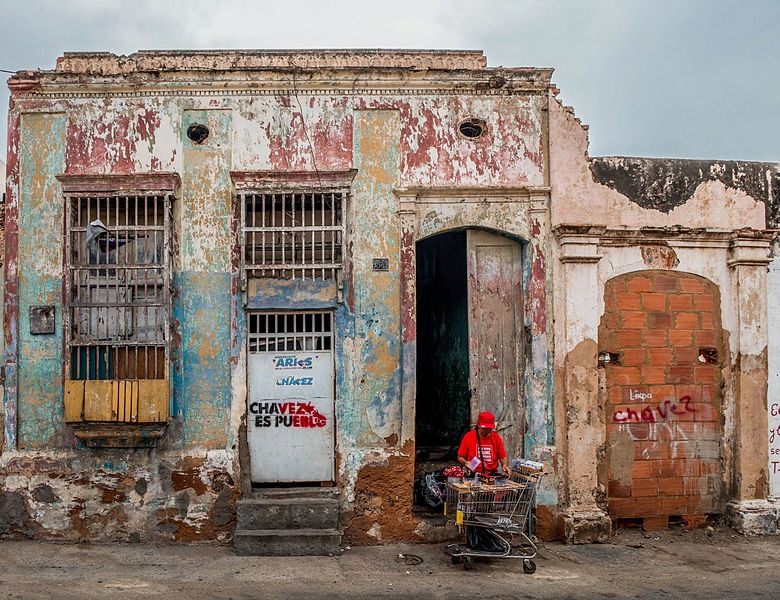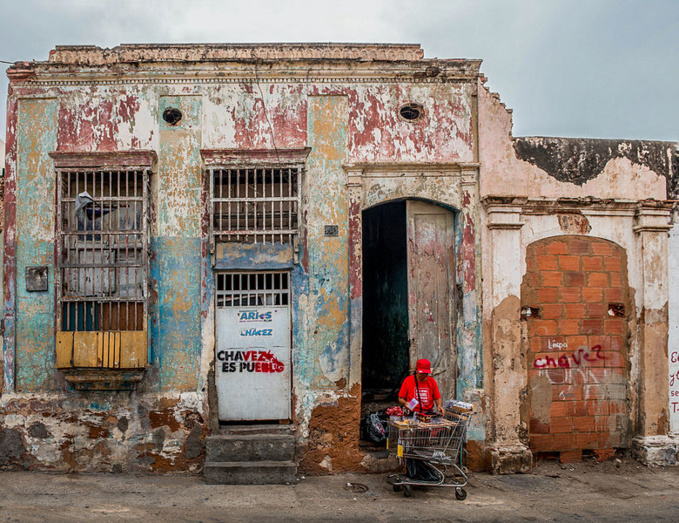The rapid price increase in Venezuela became the 57th recorded case of hyperinflation, notes Steve Hanke, professor of economics at Johns Hopkins University. And the situation is expected to worsen. According to IMF estimates, the country's GDP will decrease by 15% by the end of the year and will be half as much as in 2013, and inflation will reach 13,000%.
Monetary injections of the government exacerbated the situation. According to the Central Bank of Venezuela, the offer of Bolivar has grown 14 times in 12 months. Since Venezuelans are in a hurry to spend money faster, banknotes have to be changed every 7-9 months, whereas US dollars serve about six years, people who are aware of the government's currency transactions say.
The dollar exchange rate on the black market is now about 236,000 bolivars, which is 80 times more than at the beginning of last year. In 2013, you could buy a small apartment for this money, and now it’s not enough for a snack for lunch. "The authorities lost control. They could not stop releasing bolivars even if they wished," says Omar Zambrano, a former economist at the Inter-American Development Bank. " There are two options: either we move to the dollar, or we will return to barter."
People have already begun to accept eggs as payment. When Marina Fernandez, a professor of architecture from Caracas, did not have enough money for parking, she paid with two eggs, and her university paid a programmer with a pack of eggs. She notes that onions or bananas do not fit: "People want protein, so eggs are a great option."
Priest Alfredo Infante tracks the price increase with the help of eggs. According to him, half a year ago, donations received on one Sunday mass were enough to buy 30 eggs, but now he needs more than 50 mass. "Is it possible to plan the budget in such conditions?" – he asks.
Key industries, such as public transport, still work exclusively with cash. Therefore, a shortage of bank notes turns basic transactions into an odyssey. For example, Marisol Rodriguez, who travels for three hours by bus from her town to work in a clinic in Caracas, is forced to stand in queues for a couple of hours in banks to withdraw an amount equivalent to 10 cents. When banknotes run out of money at the local bank branch, they have to purchase them with a bank card from dealers with a margin of 40-120%. Therefore, Rodriguez sleeps in his clinic to save money on trips during the week.
The government is developing electronic solutions. Supporters of President Nicholas Maduro have a personalized card with a QR code, the so-called "homeland card." The government wants to turn it into an electronic purse to buy subsidized products. And on February 20 it plans to release the world's first national crypto currency Petro. Petro will be backed by 5 billion barrels of oil, diamonds and gold. At the first auction, the government will sell Petro tokens for dollars and euros and each of the tokens will be tied to oil prices, the government documents said. "We are revolutionizing the world," Maduro said recently.
source: wsj.com
Monetary injections of the government exacerbated the situation. According to the Central Bank of Venezuela, the offer of Bolivar has grown 14 times in 12 months. Since Venezuelans are in a hurry to spend money faster, banknotes have to be changed every 7-9 months, whereas US dollars serve about six years, people who are aware of the government's currency transactions say.
The dollar exchange rate on the black market is now about 236,000 bolivars, which is 80 times more than at the beginning of last year. In 2013, you could buy a small apartment for this money, and now it’s not enough for a snack for lunch. "The authorities lost control. They could not stop releasing bolivars even if they wished," says Omar Zambrano, a former economist at the Inter-American Development Bank. " There are two options: either we move to the dollar, or we will return to barter."
People have already begun to accept eggs as payment. When Marina Fernandez, a professor of architecture from Caracas, did not have enough money for parking, she paid with two eggs, and her university paid a programmer with a pack of eggs. She notes that onions or bananas do not fit: "People want protein, so eggs are a great option."
Priest Alfredo Infante tracks the price increase with the help of eggs. According to him, half a year ago, donations received on one Sunday mass were enough to buy 30 eggs, but now he needs more than 50 mass. "Is it possible to plan the budget in such conditions?" – he asks.
Key industries, such as public transport, still work exclusively with cash. Therefore, a shortage of bank notes turns basic transactions into an odyssey. For example, Marisol Rodriguez, who travels for three hours by bus from her town to work in a clinic in Caracas, is forced to stand in queues for a couple of hours in banks to withdraw an amount equivalent to 10 cents. When banknotes run out of money at the local bank branch, they have to purchase them with a bank card from dealers with a margin of 40-120%. Therefore, Rodriguez sleeps in his clinic to save money on trips during the week.
The government is developing electronic solutions. Supporters of President Nicholas Maduro have a personalized card with a QR code, the so-called "homeland card." The government wants to turn it into an electronic purse to buy subsidized products. And on February 20 it plans to release the world's first national crypto currency Petro. Petro will be backed by 5 billion barrels of oil, diamonds and gold. At the first auction, the government will sell Petro tokens for dollars and euros and each of the tokens will be tied to oil prices, the government documents said. "We are revolutionizing the world," Maduro said recently.
source: wsj.com



















